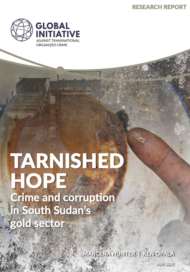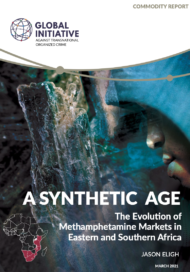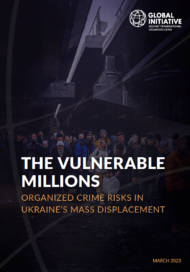Posted on 16 Aug 2016
In the weeks prior to the start of the Olympics in Rio de Janeiro, Brazil stepped up its monitoring and arrests regarding criminal gangs and individuals not only in Rio’s favelas but especially those with suspected links to terrorist and militant groups worldwide such as the so-called Islamic State.
Coincidentally, just a week before the Opening Ceremony, a former Hezbollah member and Lebanese national, Mr. Fadi Hassan Nabha, was arrested – but not for links to terrorism, as Hezbollah is not recognised a terrorist organisation by Brazil. Instead, Mr. Nabha was on Interpol’s wanted list for drug trafficking for years, as Lebanon has increasingly become a strategic entrepôt for cocaine.
 Over the last four years, Lebanese law enforcement has interdicted an increasing amount of pure, high quality cocaine coming from Latin America. The drug appears to originate Venezuela and Colombia, but comes on the direct flight from Sao Paolo to Beirut. According to the head of Lebanese Drug Enforcement, that the Global Initiative interviewed in May 2016, the pure powder is cut in Lebanon and further shipped to other destination countries, mostly the Gulf States. The majority of cocaine traffickers caught in Rafic Hariri International Airport are Lebanese and Brazilian nationals.
Over the last four years, Lebanese law enforcement has interdicted an increasing amount of pure, high quality cocaine coming from Latin America. The drug appears to originate Venezuela and Colombia, but comes on the direct flight from Sao Paolo to Beirut. According to the head of Lebanese Drug Enforcement, that the Global Initiative interviewed in May 2016, the pure powder is cut in Lebanon and further shipped to other destination countries, mostly the Gulf States. The majority of cocaine traffickers caught in Rafic Hariri International Airport are Lebanese and Brazilian nationals.
Whilst Lebanon is a transit – and at times origin – country for several drugs, these follow different routes. Captagon originates in Syria, but is usually shipped via maritime containers with a Gulf destination. Hashish and marijuana are produced mainly for local consumption in the Bekaa Valley in Lebanon’s east.
Despite the differing transit routes, there seems to be an increasing convergence: outbound cocaine has frequently been found in the same shipment with other drugs, and hidden in similar ways.
“If they don’t want anything to happen, nothing will happen.” (Senior UN Official)
Yet, the linkages between drug trafficking, organised crime and terrorism are unclear.
There is a no proof that Hezbollah is involved in the illicit trade in Lebanon. However, some people say that in in areas under Hezbollah control nothing happens without the group’s approval.
As always, limited intelligence on drug trafficking and criminal networks hampers our understanding of the actors and their modus operandi. Especially in Lebanon’s south, drug trafficking is not a part of the mandate of the UN Security Mission (UNIFIL) and they are also not authorised to speak with Hezbollah. Overall, sensitive issues such as drug trafficking and terrorism are avoided by many political actors.
Another issue is the tendency to merely seize drug shipments and perhaps arrest the “little trafficker” at the bottom of greater networks. Lack of local capacity and other priorities hamper a more comprehensive response to organised crime which would thoroughly follow up and dispending the greater networks.
The case of the recently arrested Fadi Hassan Nabha shows that drug traffickers move across borders and that a global search – be it by Interpol, Lebanese or Brazilian authorities – and international cooperation is key to not only arresting individual traffickers but also dismantling their networks.
A Global Initiative report on drug trafficking, focussing on various different drugs and their routes, in Lebanon and the region is coming soon.



